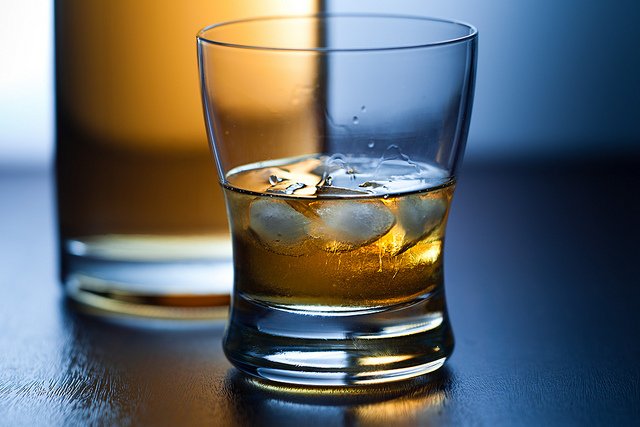After Dutch film director Theo van Gogh put out "Submission: Part 1" , which criticized the treatment of women in Islam, he was murdered by Mohammed Bouyeri, who ranted about a "Jewish cabal" and later directed to van Gogh's mother, "I don't feel your pain, because I believe you're an infidel."
Racism and intolerance take away empathy for others,(1) but so does alcohol.

It is challenging to find anything good to say about alcohol. For a brief period in time, journalists and people who like wine cheered when red wine was "linked" to positive health outcomes, much like they cheered the same thing about chocolate this week (right after declaring chocolate contained toxic heavy metals, because media corporations sell ads), but alcohol is instead a known carcinogen with an addictive chemical that uses flavors to make it more palatable.(2)


No product could get FDA approval for that today, any more than Certified Organic pesticides like copper sulfate could. There is no benefit to alcohol, and the kind of risk that predatorts who want to sue over nonsense correlation to disease like weedkillers and PFAS can only wish was real is real when it comes to booze.
Worse, a pair of recent experiments found that it raises the threshold for pain - in drinkers and in drinkers willingness to inflict pain on others. A lot like religious zealots such as Bouyeri believe about other faiths - "I don't feel your pain." in both experiments, one with 543 and one with 327 who all said they drank at least three alcoholic beverages in one sitting at least once per month, paid ($75) participants were given an alcoholic beverage or a placebo with a trace amount of alcohol sprayed so it seemed like it contained alcohol.
After drinking, each got one-second electrical shocks to two fingers on one hand which increased in intensity until they declared the shock “painful.” Then they competed in an online reaction time competition where the winner delivered a shock to the loser, ranging from 1 to 10 intensity - 10 being the level the participant declared their pain threshold while being shocked.
They even got to choose how long the shocks lasted.
Obviously there was no other person being shocked, and the research team randomly said they won or lost. The experiment was to see if those who drank the alcohol delivered stronger and longer shocks and how their personal pain threshold correlated to that.
They found that those who drank alcohol had a higher pain threshold for the shocks, but they were also more willing to give out more intense and longer shocks to 'losers' than those who consumed the placebo.
So even if you think alcohol makes you a 'happy' person, if it increases your threshold for pain, you may not be more fun to those around you.
NOTES:
(1) As we have seen among America's most progressive universities when ranting about a similar 'Jewish cabal' and "The Great Betrayal" of the UN in creating an Israel and Palestine in 1948, after Europeans enabled the murder of millions of Jews by preventing immigration to land they owned in the middle east at the insistence of oil-controlling dictators.
(2) It is basically what vaping was claimed to be by CDC before they showed their incompetence during a real epidemic, COVID-19, and spent their days creating new ones to get calls to action for more funding, like with vaping and pre-diabetes. When CDC can tell us before six weeks have passed that lettuce is tainted, maybe they'll be ready for real disease control and prevention, but until then we are lucky FDA will let the private sector fix problems and then CDC can take credit for it.





Comments